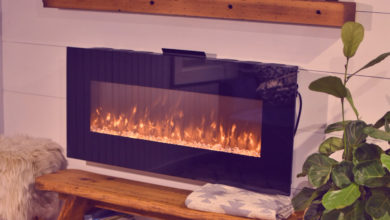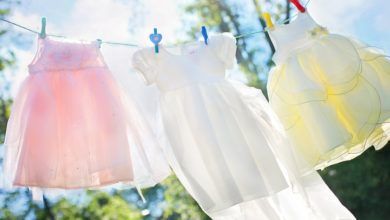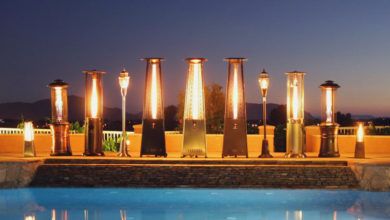Does this sound like music to your ears? It indeed should especially with the huge cost that may accumulate on their energy use. As a way of reducing energy costs, we will look at how to make savings in just one aspect which is water heating.
While this may not cover every aspect of your energy usage, according to energy.gov it is the second highest contributor to your energy costs with only your cooling and heating contributing more than it. Since it is a significant contributor to your energy costs, making some savings here will at least be a good start towards making good savings on your general energy costs.
In sharing these water heating tips, we shall break them into two groups. The first group will be tips that do not require any structural adjustment or modification while the second group includes tips that will require some structural adjustments or modifications.
Tips Requiring No Structural Adjustment or Modification
These tips will cover actions we can take that will result in savings. These actions will not require any form of installation of equipment or modification of existing ones.
Reduce Your Hot Water Usage
As basic as this may sound, the amount of hot water you use can have a significant impact on your energy costs. Many times, we actually do not really need to use all that much hot water. Once we can identify areas of wastage, we will be well on our way to reducing both our water usage and energy costs.
Let’s try to enumerate some specific ways in which we can reduce our hot water usage.
Shower Time – This can be a very relaxing and enjoyable time. But really, do you need to spend all that time there with the hot water running? Yes, you enjoy it but do you really need that much time? Truth is, you really don’t. Be efficient with your shower time. Do what needs to be done quickly and get out.
Aside from reducing the actual length of time spent there, you also do not need to have the water running all through your time there. There are times when you can stop the water to lather your body, go pick up something or generally not need the water.
Let’s look at you brushing your teeth or shaving. Do you leave the water running while you brush or shave? Think about it, you can actually shave and brush without the water running. When you really need the water, you turn it on, use it and shut it off.
Shower More Than You Bath – Soaking in a hot bath is so soothing and tempting that you may want to do this every so often. Well, you can but if you do, do not complain about your high energy and water bills.
The amount of hot water you need to fill your bath so you can soak in it is a luxury you should limit to the barest minimum if you want to reduce your energy costs. Depending on the size of the bath, even filling it halfway may require some good amount of water.
We’ve already mentioned shower time above so it’s not just about taking more showers than baths but taking more SHORT showers than baths. A long shower can also waste as much water as a bath.
Dishwashing – We know you want your dishes washed quickly so you can stack them neatly but if you want to save, you will be better off washing only when the dishwasher is fully loaded rather than every time you have a few dishes in it.
In addition to washing only with full loads, you may also want to opt for short wash cycles. If you have a dishwasher that has a booster heater feature, be sure to activate it.
Doing the Laundry
You know you do not always have to use hot water for your washing? Most of your loads can be washed with cold or warm water and the rinsing can most certainly be done with cold water.
Check Your Water Heater’s Temperature
According to energy.gov, you can actually make savings of between 3% to 5% for every 10ºF lowering of your water heater’s temperature. Go right now and check what it is set to and if it is anything more than 120ºF, bring it down. 120ºF is the recommended setting by energy.gov.
Tips Requiring Structural Adjustment or Modification
Now we will be looking at some tips that will involve either the modification or adjustment of existing appliances or installation of new ones.
Energy Star-Qualified Appliances
For anyone who can upgrade the appliances in their home, it is very important to ensure you get ones that are energy star-qualified. Appliances with this rating will save you some money.
Dishwashers – While some may think they can save money washing by hand, you actually may not. By the time you have washed several times a day, you may end up using up more hot water than you would use if you used a dishwasher that is energy efficient.
An energy efficient dishwasher will use 33% less water than a non-energy efficient one and will also use about 31% less energy than a non-energy efficient one. Put this much saving together and over time, it will amount to something very tangible.
Cloth Washers – Many of us do not take the time to consider how much water and energy we may be wasting with these machines. It is claimed that an energy efficient washer will save you within its life cycle, water that will fill about 3 home swimming pools. Imagine that.
In addition to this, it is recorded that if you use a washer that is over 10 years old, you are likely spending about $135 more every year than you would if you had an energy efficient washer.
The Water Heater
With water heaters, if you have an old one, then get a new one if you can. If, however, ever cannot take on such an expense at this time, you can do the following:
Install A Timer – This will save you cost by ensuring the water heater is on only during the times of the day when you require hot water.
Get Your Hot Water Tank Insulated – It is a waste to heat up water and then have the heat dissipate. This is a waste of energy. Insulate the hot water tank to keep the water hot for much longer, reducing the need to constantly heat water.
Consider Insulated Water Pipes – This will keep the water hot even as it runs through the pipe. You do not need to have the entire length of the pipe insulated. You only need to have the first 10 feet or so from the heater insulated.
Repairs
Leaking pipes and heaters and any such leaks should be fixed immediately. According to energy.gov, a water leak at the rate of one drop per second will over the course of a year amount to about 1,661 gallons of water. This will cost you about $35. Now imagine if you had multiple leaks.
Shower heads and Faucets
If you use a shower head or faucet that was manufactured prior to 1992, then you are likely using about 25% to 60% more water than you will if you installed a modern one. Get a new shower head and faucet and reduce the amount of water you use.
Conclusion
You can see that while there are some tips that will require some installations or modifications in your appliances or even a total change, a number of the tips are simply common sense changes that you need to make. Get on with these changes and smile at the savings you will make.





